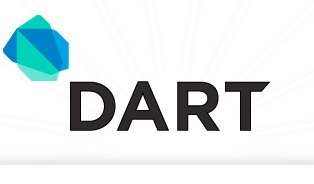Google unveils Dart
Google's new web programming language is go
Daily design news, reviews, how-tos and more, as picked by the editors.
You are now subscribed
Your newsletter sign-up was successful
Want to add more newsletters?

Five times a week
CreativeBloq
Your daily dose of creative inspiration: unmissable art, design and tech news, reviews, expert commentary and buying advice.

Once a week
By Design
The design newsletter from Creative Bloq, bringing you the latest news and inspiration from the worlds of graphic design, branding, typography and more.

Once a week
State of the Art
Our digital art newsletter is your go-to source for the latest news, trends, and inspiration from the worlds of art, illustration, 3D modelling, game design, animation, and beyond.

Seasonal (around events)
Brand Impact Awards
Make an impression. Sign up to learn more about this prestigious award scheme, which celebrates the best of branding.

Google has unveiled Dart, its new programming language for writing web applications. In a blog post, Dart software engineer Lars Bak explained that the goal is to create a "structured yet flexible" language that performs well in all environments and is easy to learn.
He also writes: "Dart code can be executed in two different ways: either on a native virtual machine or on top of a JavaScript engine by using a compiler that translates Dart code to JavaScript. This means you can write a web application in Dart and have it compiled and run on any modern browser."
Gotocon.com attendees were this morning given a detailed briefing on the inner workings of Dart. Tweeting from the conference, Lanyrd developer Jake Archibald wrote: "So far, Dart looks like a JavaScript wish list rather than something justifiable as a whole new thing. JS should take the good bits".
He followed up with "JS could make it quickly irrelevant by adopting the good bits" and "Hopefully it'll give JS a kick in the scruttocks when it comes to adopting optional typing and classes".
We spoke to developer Ross Bruniges who gave this view: "In a nutshell I don't see the point of Dart at the moment, in the same way that I don't see the point of CoffeeScript, HAML or SASS. It feels like something created to allow people who can't or won't learn what I consider the core components of the web: HTML, CSS and JavaScript.
"We can already create mind-blowing functionality using these technologies. For instance, at Fronteers last week I saw Seb Lee Delisle use JavaScript to access the audience's 500+ smartphones and devices, detect their location and then run a Nyan Cat between them. It feels like people just like tinkering with something that while has limitations doesn't seem to stop people from creating incredible things with it."
A Google spokesperson said in response: "With existing languages, the developer is forced to make a choice between static and dynamic languages. Traditional static languages require heavyweight toolchains and a coding style that can feel flexible and overly constrained. Thus we believe the Dart language presents a comprehensive solution to current problems facing web developers. It's worth reiterating that Google continues to have a huge interest in keeping the evolution of JavaScript on track, and today's announcement does not alter this."
The language and some tools are available on dartlang.org. There's a cool app on the front page called Dartboard that enables you to type in code and press Run to see the output right there on the page.
Also check out @dart_lang, which was doing a Q&A this morning.
Daily design news, reviews, how-tos and more, as picked by the editors.

The Creative Bloq team is made up of a group of art and design enthusiasts, and has changed and evolved since Creative Bloq began back in 2012. The current website team consists of eight full-time members of staff: Editor Georgia Coggan, Deputy Editor Rosie Hilder, Ecommerce Editor Beren Neale, Senior News Editor Daniel Piper, Editor, Digital Art and 3D Ian Dean, Tech Reviews Editor Erlingur Einarsson, Ecommerce Writer Beth Nicholls and Staff Writer Natalie Fear, as well as a roster of freelancers from around the world. The ImagineFX magazine team also pitch in, ensuring that content from leading digital art publication ImagineFX is represented on Creative Bloq.
